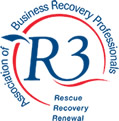Strike Off or Liquidate?
Mar 12, 2021

Strike Off or Liquidate? What to do when your company has debts it cannot repay?
As of Monday 8th March 2021, Companies House resumed the process to dissolve companies who applied for a voluntary strike off (as well as recommence their own compulsory strike off process).
When speaking with directors and owners of businesses which are insolvent and have debts they cannot repay, we are sometimes asked the question why can’t we just strike the company off?
How to strike off a limited company?
The Government website is fairly useful in explaining when company strike off is available as an option, together with guidance on the procedure. The link is provided at the end of this article.
In order to voluntarily strike off a company, part of the process includes completing and then submitting Form DS01 to Companies House and paying a £10.00 fee. Importantly, there is a declaration which the majority of the directors must sign to confirm compliance with the legislation – it is an offence to knowingly or recklessly provide false or misleading information when striking off a company.
When the company has creditors – in accordance with Section 1006 of the Companies Act 2006 notice must be sent to all known creditors who are owed money from the company (as well as other prescribed persons) within seven days, otherwise the directors commit an offence.
The notice is also automatically advertised in the London Gazette, giving all creditors (including HMRC, banks, lenders and other financial institutions), two months to object to the voluntary strike off.
What does this mean?
So, if the company has debts the directors must make a declaration regarding their compliance with the relevant legislation and, of course, must comply. This gives creditors an opportunity to object to the strike off when written to, plus HMRC and/or lenders in particular will pick the notice up in the London Gazette and object (if they haven’t already via their direct notice in the post).
When writing to creditors who are owed money from the company, it is very unlikely that they would be happy for the company to simply strike off and not pay its debts, without going through a statutory insolvency procedure.
With regards to HMRC and banks/financial institutions – it is extremely unlikely that companies will be allowed to strike off when there are debts owing. It is important to note that even in the unlikely event the company manages to “slip through the cracks” and the strike off is completed, creditors can make an application at a future date to restore the company to the register in order to pursue their debt, and directors personally for any wrongdoing.
COVID-19, Bounce Back Loans and CBILS
There have been many reports in the media of the number of struggling businesses, businesses now with debts which they cannot repay, businesses which were trading perfectly well prior to March 2020 however have now accrued a significant debt burden over the last 12 months – including HMRC balances, bounce back loans and/or CBILS loans.
Any director looking to abuse the strike off process by trying to strike off a company which has debts, particularly HMRC and taxpayer guaranteed debts such as a bounce back loan or CBILS loan, will be putting themselves significantly at risk.
Liquidation & the Insolvency Act 1986
The Insolvency Act 1986 details the proper process for liquidating an insolvent company. This involves instructing a licensed and regulated insolvency practitioner to ensure the affairs of the company are wound up properly. There is a whole profession dedicated to dealing with insolvent companies, who ensure compliance with the legislation within the Insolvency Act.
The debts owed become claims in the liquidation. For example, HMRC may have a claim for VAT, PAYE, CIS or Corporation Tax. Banks and other lenders may have a claim for bounce back loans or CBILS loans which the company cannot repay. The insolvency practitioner becomes known as the liquidator and will deal with all creditors on behalf of the company.
The liquidator will realise the company’s available assets on behalf of the liquidation estate. Within three months the liquidator will carry out enquiries into the affairs of the company and provide factual information to the Insolvency Service, who considers directors’ conduct prior to liquidation.
What happens to a bounce back loan in liquidation?
A bounce back loan is an unsecured debt, owed by the company to the lender. The lender is supported by the guarantee from the Government / UK taxpayer so it will recover the lost funds on liquidation under the terms of such guarantee.
Essentially, so long as the bounce back loan has been properly applied for and has been properly spent by the company, then there should be no criticism or risk on the directors.
If directors are concerned that they may have been creative when confirming the company’s turnover on application of the bounce back loan to obtain a greater loan amount that ought to have been secured or, not all funds were necessarily kept within the company for the purpose of the business, this will need to be discussed with the insolvency practitioner, as it will be picked up as part of the enquiries into the affairs of the company. There are provisions within the Insolvency Act which deals with potential wrongdoing by directors – any director which has concerns about this should speak with the insolvency practitioner at the outset so that proper advice can be sought on each individual set of circumstances.
In Summary
If the company is insolvent and has debts it cannot repay, don’t try and sneak it through the strike off process by making false declarations and committing offences which will almost certainly be picked up before the strike off process is complete, bringing personal consequences. Instead, seek independent professional advice from a licensed and regulated insolvency practitioner. Most will offer a free initial consultation and will provide no obligation initial advice.
If you would like to speak with one of the insolvency practitioners at ICS, here are their direct contact details, please feel free to get in touch anytime, wherever you are in the UK: -
Tom - 07795 196619 or tom.bowes@idealcs.co.uk
Andy - 07812 338252 or andrew.rosler@idealcs.co.uk
Links



